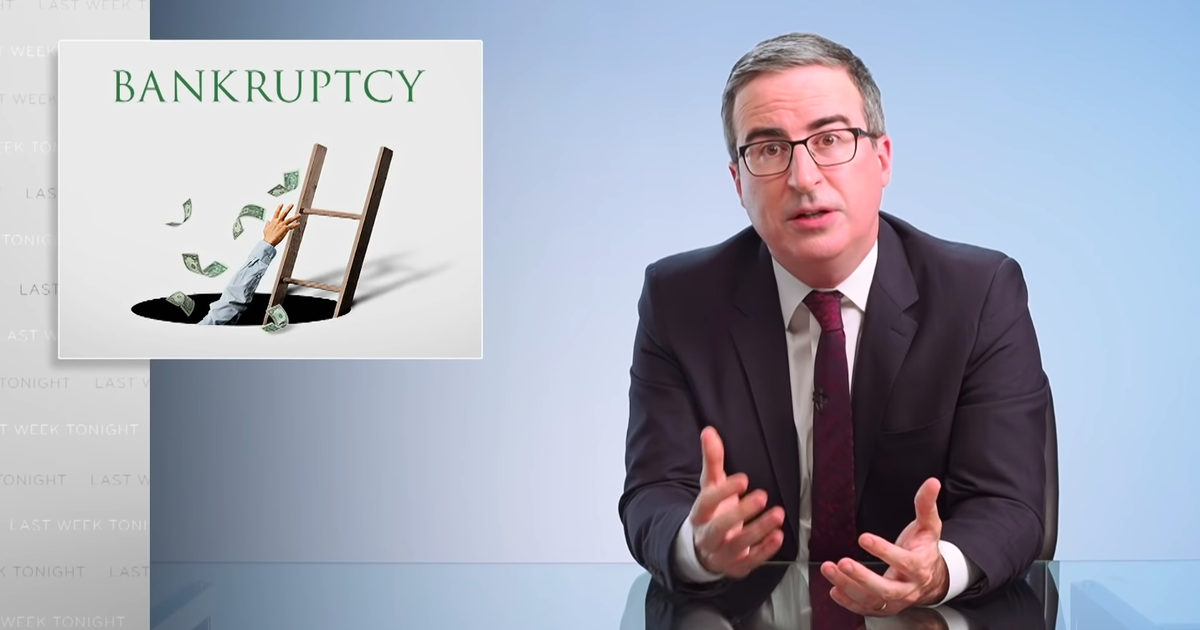
Over the past decade, ProPublica reports, the number of people filing for bankruptcy has been on the rise in the U.S., with “the number of consumer bankruptcies filed each year has ranged from about 800,000 to 1.5 million.”
Now, with the long-term financial impact of the coronavirus pandemic weighing heavily on many Americans, Last Week Tonight host John Oliver noted, “Many worry that once the current pandemic assistance stops, more and more people will need the type of help that bankruptcy offers.”
But how exactly does personal bankruptcy work? In a segment on his Sunday show, Oliver took a deep dive into how bankruptcy works, the reasons people file for it, how complicated the legal process can be, the fact that there is more than one kind of personal bankruptcy (there’s two: Chapter 7 and Chapter 13), and the consequences of filing for it — including social stigma.
“That broad brush stigmatisation is common and completely misguided, because bankruptcy is not solely caused by bad decisions. It’s often caused by bad luck — unavoidable challenges like job loss, divorce, surprise medical bills, or perhaps even, you know, a once in a century global pandemic,” said Oliver. “And despite bankruptcy often being characterised as an easy out, the way it’s currently set up, it’s sometimes not an out at all.”
It’s this system and its history that Oliver really digs into, running from the Bankruptcy Reform Act of 1978 to the rise of consumer spending and debt amid the credit card industry’s advantageous period of steady deregulation. Then came the industry’s lobbying for the significant Bankruptcy Abuse Prevention and Consumer Protection Act of 2005, “which made it far more complicated to file for bankruptcy than it had previously been, which in turn made it far more costly, which meant many people ended up in a situation where they couldn’t afford to go bankrupt,” said Oliver.
It’s a seriously complicated web for people already in a bind to navigate — one many end up trapped in, ending up in a worse place than they started.
“The fact is something big needs to happen here,’ Oliver concluded, “because we badly need to get our broken bankruptcy system working again for people who desperately need a lifeline.”
